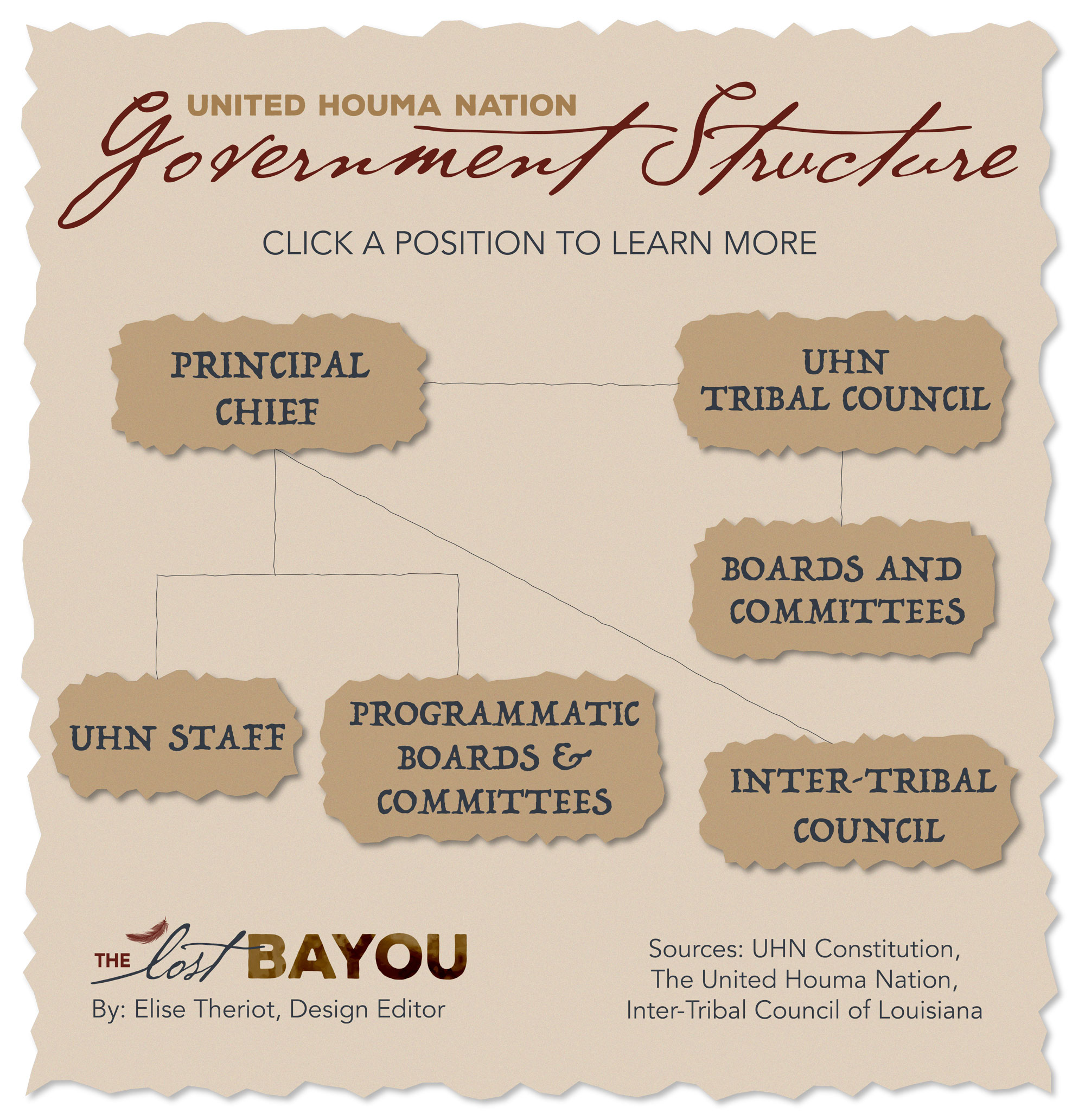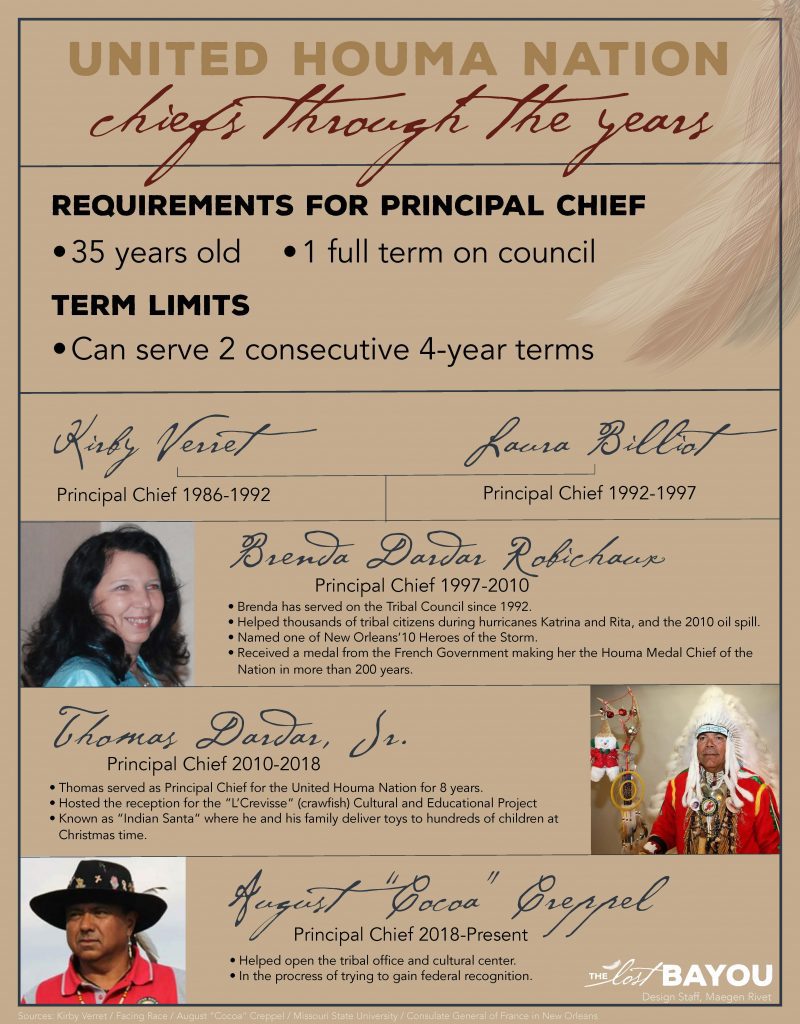By hannah orgeron, staff writer
Within the United Houma Nation, a system of government has been created. This system is not only important to keep the peace between the people, but it acts as representation for the citizens when they cannot fight by themselves.
This system includes the chief, who is currently August “Cocoa” Creppel.
“A government body within the tribe is very necessary,” he says. “You know we have almost 19,000 people spread out between six different parishes, and you have to have a good government representing each area and district so it’s very important to have a council of 11 people representing these areas. We come together to do what is best for the tribe.”
Under the chief, the council then elects a vice principal chief, currently Donny Verdin.
“Anyone can run for a position on the council,” he says. “In order to be a chief, you have to have experience being on the council though. We hold elections every four years and people run for the positions they desire. Both the chief and the council are elected to office every four years, but the chief can only do two terms. However, the council has no limit once elected.”
According to the constitution of The United Houma Nation, within the government system there are different roles that make it most effective. Such as principal chief, vice principal chief, secretary, treasurer, parliamentarian, sergeant-at-arms, and the duties of committees or appointed officers.
The positions of vice principal chief, secretary, treasurer, and parliamentarian are filled by citizens the tribal council nominates from within. However, the sergeant-at-arms and any other committee member are picked from out of the council and are not allowed to vote at Tribal Council meetings.
Anyone can be on the Tribal Council as long as they are 25 years of age, reside in the district they are running for, have a high school equivalent diploma and do not have a criminal record.
However, in order to run for chief one must be 35 years of age and have prior experience on the Tribal Council along with following all of the rules for being elected to tribal council. Tribal Council and chief positions are determined by majority vote.
Creppel says he feels he is lifting his people up from the bottom, instead of being on top because he is chief.
“I was told, you’re the chief, you’re on top, but I feel as I’m not on the top I’m on the bottom lifting my people up, not on the bottom holding them down,” he says.
“I feel that it is my position to lift my people up whenever I can and to represent my elders to get them the representation for leading the way and also for our children who are our future.”
PODCAST Chief Cocoa Creppel discusses the United Houma Nation government.


